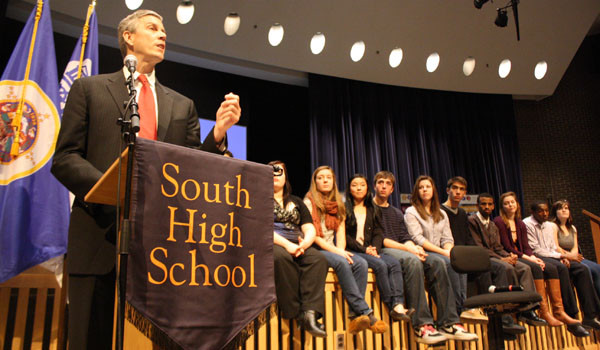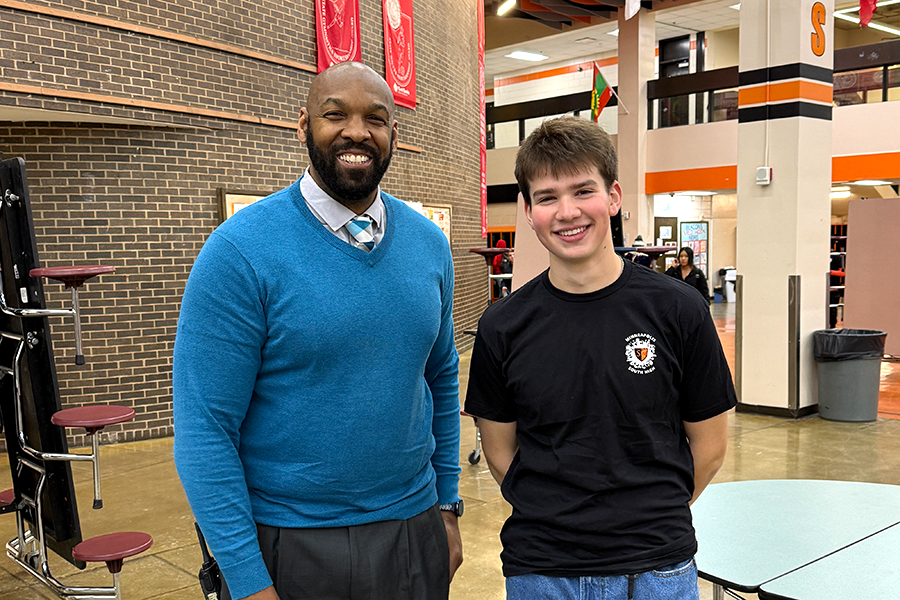“Look at all these fancy people!” said senior Madeleine Pemberton when she saw Superintendent Bernadeia Johnson, Mayor R.T. Rybak, Senators Al Franken and Amy Klobuchar, and lastly the U.S. Secretary of Education Arne Duncan all sitting just 2 rows in front of her in the auditorium yesterday.
In his address to the seniors Rybak said, “there are a lot of really important people here but the all-stars in the room are you.” He later asked the audience, “how many of you believe you can go out and make the world a better place?” All over the auditorium hands shot up.
The senior class was gathered in the auditorium for a symposium during 3rd hour yesterday to hear Duncan and other officials speak about the importance of continuing education after high school and filling out the Free Application for Federal Student Aid (FAFSA). Duncan also took questions from students in the audience and held a press conference in the College and Career Center.
The symposium started with Johnson, Rybak, Franken, Klobuchar, and Principal Saddler each addressing the class of 2012, all stressing the importance of seeking out financial aid for education after high school. Franken mentioned the Pell Grant as a source of federal financial aid which had forty billion dollars added to it, according to Duncan, and Klobuchar talked about how $88 million in other grants was added in just the past few weeks.
“These are not gifts, they are investments,”said Duncan.
“Budgets aren’t just numbers, they reflect our values,”said Duncan in response to senior Surafel Bekele’s question about how Republican candidates’ plans for budget cuts for the Department of Education would effect funding. Duncan said that not investing in the schools “puts our nation in great peril … If we’re not valuing education and young people, there’s a serious problem.”
Duncan answered questions from students about funding for extra-curricular classes, the achievement gap, the perceived inequitable distribution of funding between inner-city schools and suburban schools, and how funding could help improve performance in schools, among other topics. He also spoke to the diversity of South, saying that “we [the Department of Education] are fighting very hard for a well-rounded and global education.”
After the microphones were put away and students were shuffling out of the auditorium and making their way to lunch, Duncan stayed back to answer questions from lingering students who hadn’t gotten a chance to ask him their questions. “What we don’t do enough of as adults is listen to you guys,” said Duncan.
During the press conference and in the symposium Duncan highlighted the strong correlation between the percentage of high school graduates attending college and the percentage that filled out the FAFSA. “We’re trying to increase the number of students that simply complete the form [FAFSA],” said Duncan.
When asked at the press conference why he came to South versus another Minneapolis Public High School, Duncan said that he saw “a lot of political leadership here… I came hopeful, and I leave inspired.”







